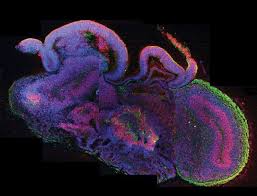
Breaking News
DRINK 1 CUP Before Bed for a Smaller Waist
 Nano-magnets may defeat bone cancer and help you heal
Nano-magnets may defeat bone cancer and help you heal
 Dan Bongino Officially Leaves FBI After One-Year Tenure, Says Time at the Bureau Was...
Dan Bongino Officially Leaves FBI After One-Year Tenure, Says Time at the Bureau Was...
 WATCH: Maduro Speaks as He's Perp Walked Through DEA Headquarters in New York
WATCH: Maduro Speaks as He's Perp Walked Through DEA Headquarters in New York
Top Tech News
 Laser weapons go mobile on US Army small vehicles
Laser weapons go mobile on US Army small vehicles
 EngineAI T800: Born to Disrupt! #EngineAI #robotics #newtechnology #newproduct
EngineAI T800: Born to Disrupt! #EngineAI #robotics #newtechnology #newproduct
 This Silicon Anode Breakthrough Could Mark A Turning Point For EV Batteries [Update]
This Silicon Anode Breakthrough Could Mark A Turning Point For EV Batteries [Update]
 Travel gadget promises to dry and iron your clothes – totally hands-free
Travel gadget promises to dry and iron your clothes – totally hands-free
 Perfect Aircrete, Kitchen Ingredients.
Perfect Aircrete, Kitchen Ingredients.
 Futuristic pixel-raising display lets you feel what's onscreen
Futuristic pixel-raising display lets you feel what's onscreen
 Cutting-Edge Facility Generates Pure Water and Hydrogen Fuel from Seawater for Mere Pennies
Cutting-Edge Facility Generates Pure Water and Hydrogen Fuel from Seawater for Mere Pennies
 This tiny dev board is packed with features for ambitious makers
This tiny dev board is packed with features for ambitious makers
 Scientists Discover Gel to Regrow Tooth Enamel
Scientists Discover Gel to Regrow Tooth Enamel
 Vitamin C and Dandelion Root Killing Cancer Cells -- as Former CDC Director Calls for COVID-19...
Vitamin C and Dandelion Root Killing Cancer Cells -- as Former CDC Director Calls for COVID-19...
This 3D Human 'Mini-Brain' Is Made of Stem Cells and Can Live For Months

Test tube brains may sound like something out of a dystopian science fiction or horror movie, but scientists are using them to understand Alzheimer's disease, Parkinson's disease, and traumatic brain injuries, and even detect these conditions early.
Now, according to research published in the American Chemical Society's Biomaterials Science & Engineering journal this month, these mini-brains can survive for at least nine months when grown in a mixture of protein from silk and stem cells from patients with diseases like Alzheimer's and Parkinson's. Artificial mini-brains typically have a short life span, but these long-lasting brains allow scientists to observe the progression of neurological diseases in groups of cells over time so that they can pin down the earliest signs of disease onset.



